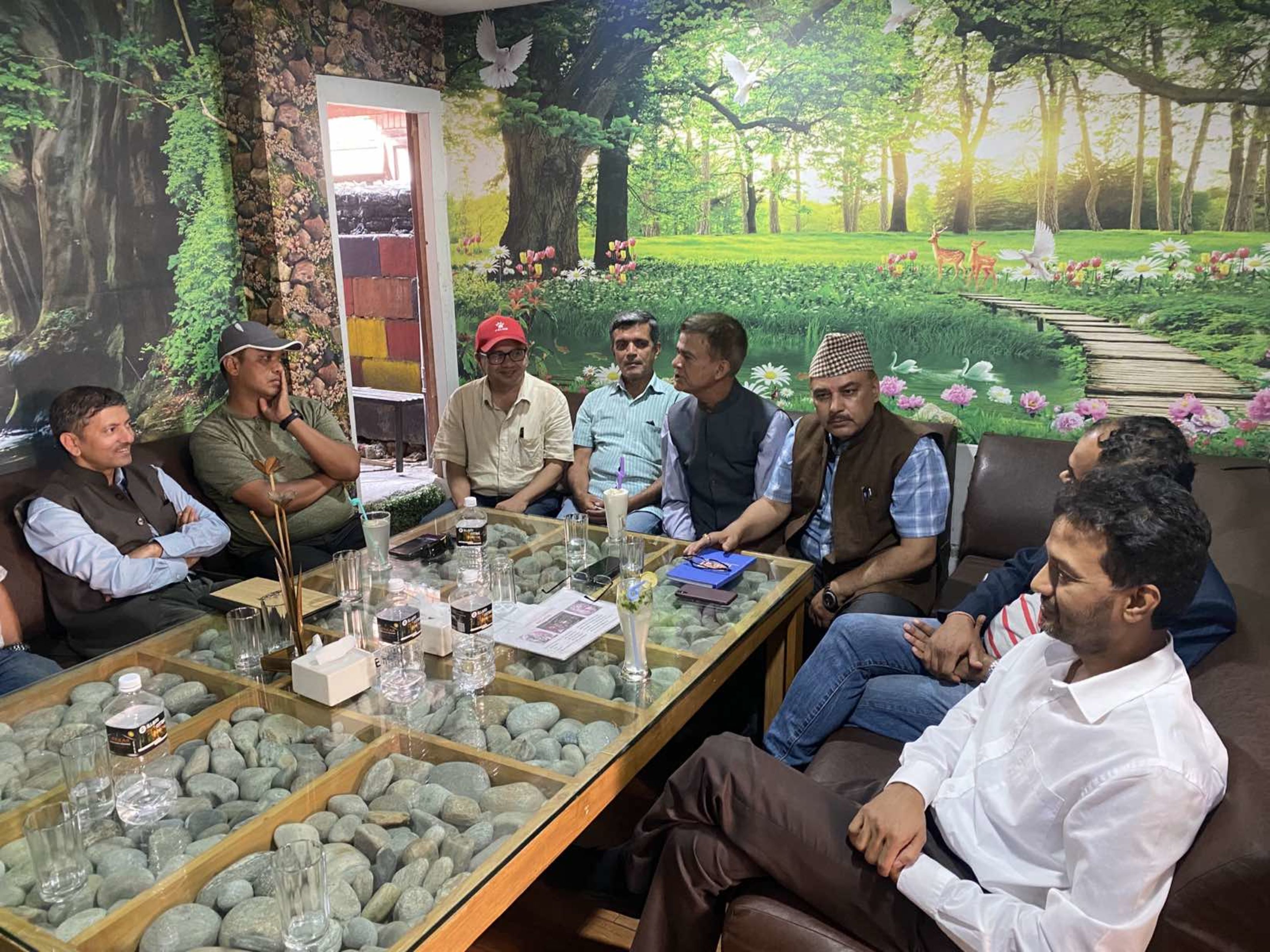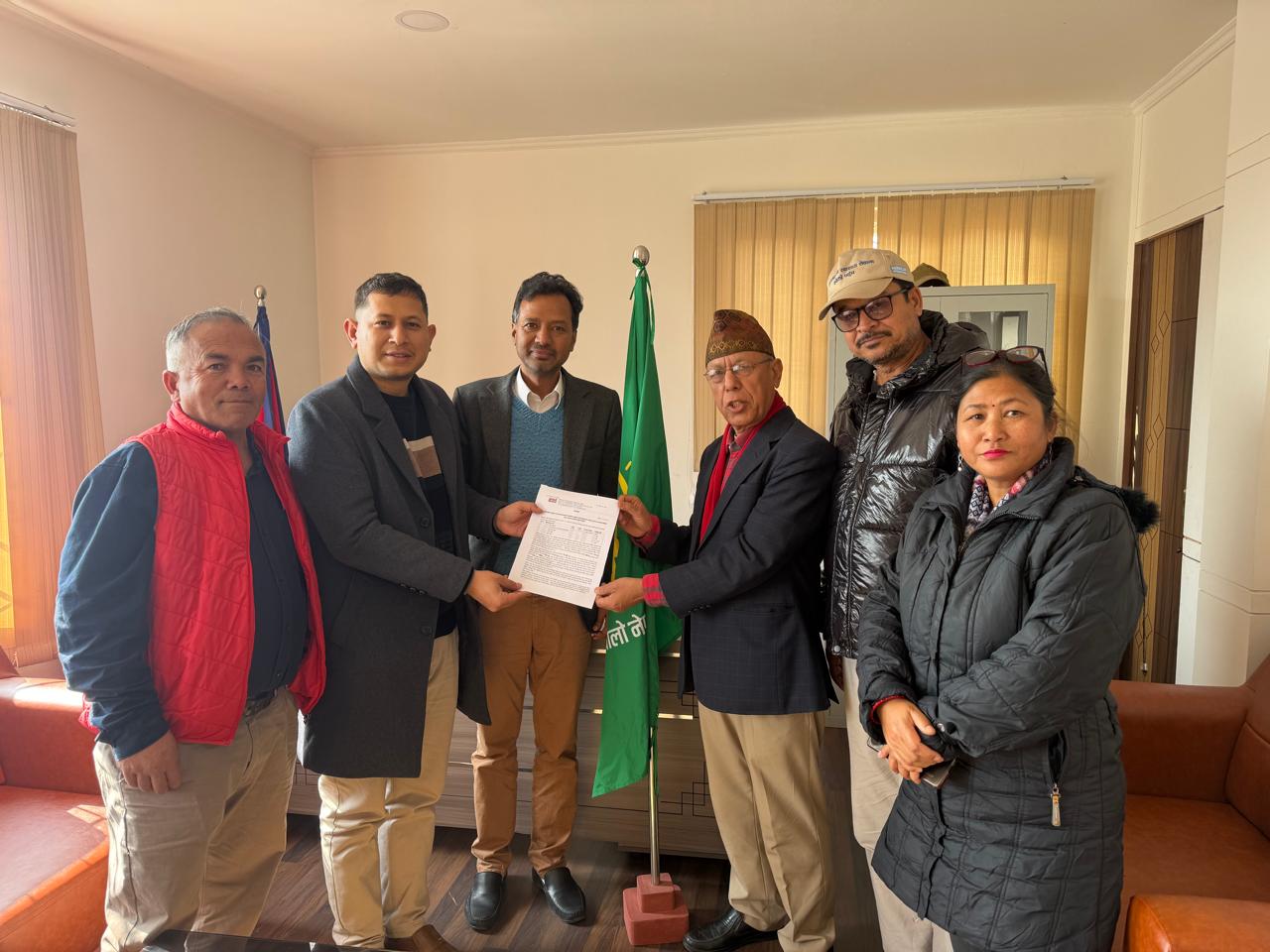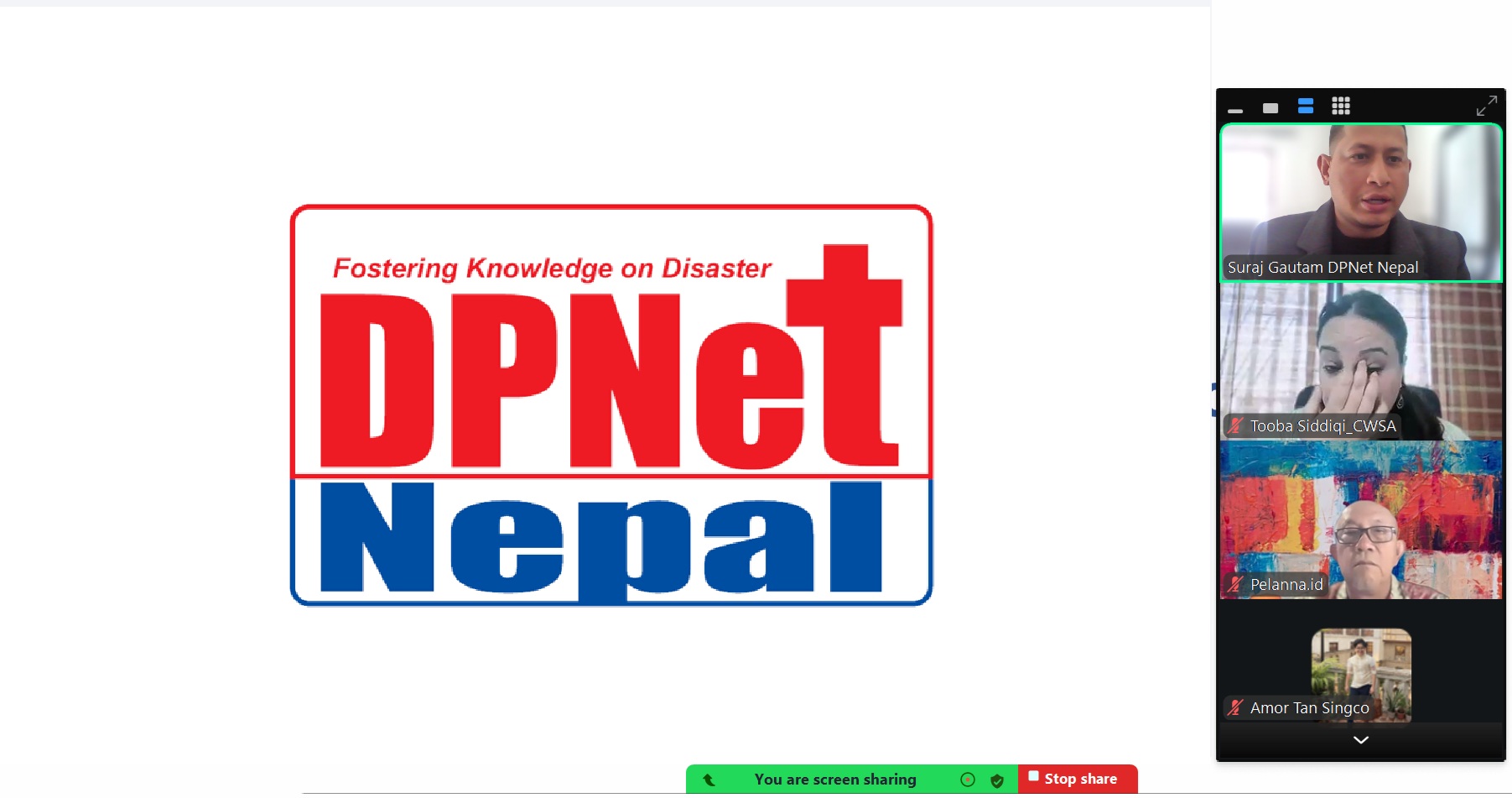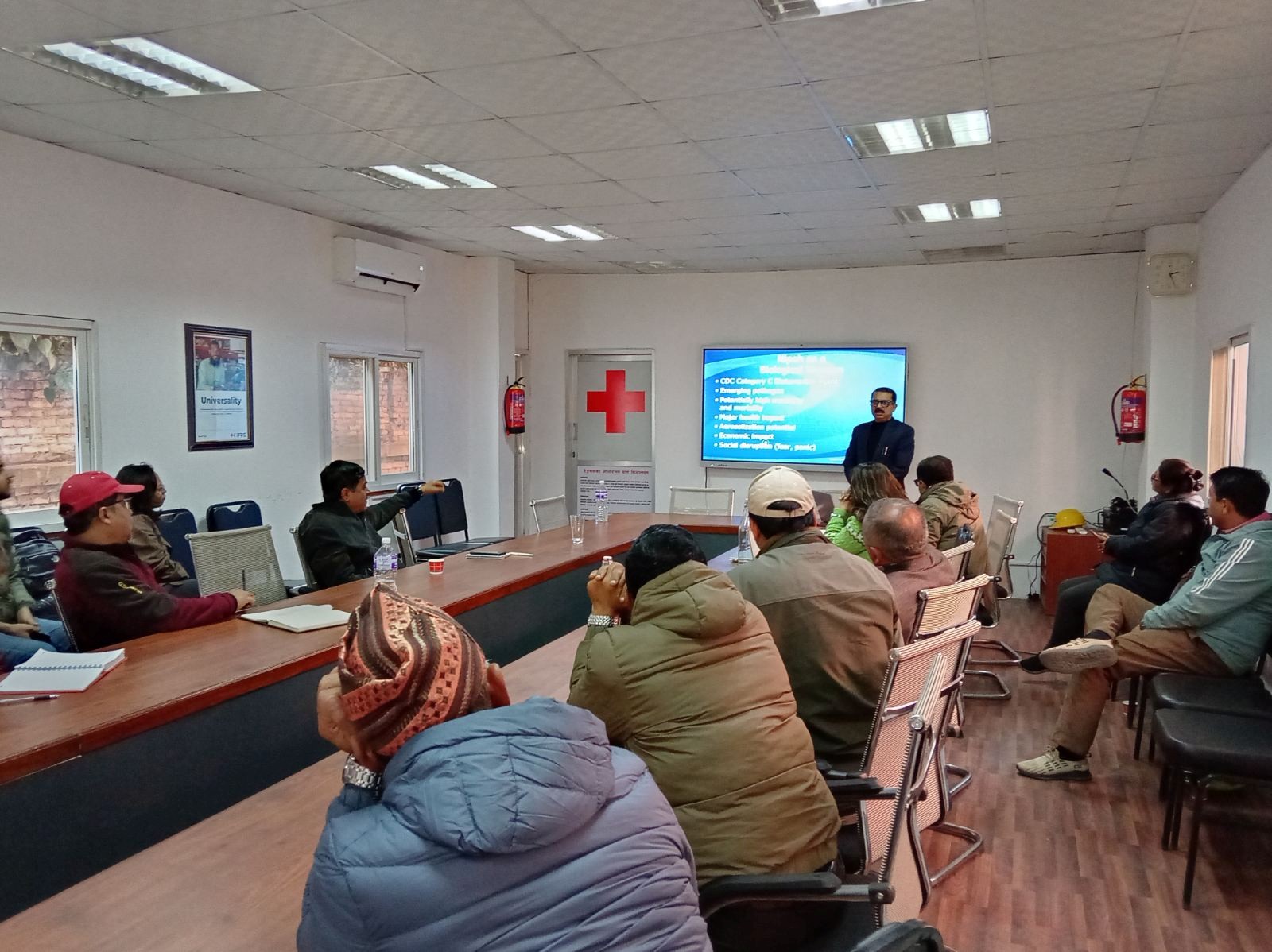Discussion Program on Establishing Media Beats Dedicated to DRR and Climate Change

KATHMANDU, June 16, 2023 – A discussion program was convened by DPNet, with the coordination of the former Secretary of the Government of Nepal and DPNet Advisor Mr. Kedar Neupane, focusing on the establishment of media beats dedicated to Disaster Risk Reduction (DRR) and Climate Change Adaptation (CCA). The event was attended by prominent media personnel, including the former Chairperson of the Federation of Nepali Journalists (FNJ), Mr. Bishnu Nisthuri.
Mr. Surya Bahadur Thapa, Chairperson of DPNet, addressed the program's objectives, highlighting the current lack of dedicated media beats for DRR and climate change issues. He emphasized the necessity to initiate dialogues and involve the media in covering these critical areas. Additionally, he informed that the Ministry of Home Affairs (MoHA), in collaboration with DPNet and USAID/Tayar Nepal, is organizing a National Conference on Disaster Risk Reduction (NCDRR) where journalists can play a pivotal role in disseminating the conference’s outcomes.
Dr. Raju Thapa, Vice-Chairperson of DPNet, voiced concern over imminent disasters, such as mega earthquakes in the Western and Eastern parts of the country, due to long seismic gaps. He stressed the necessity of sensitizing communities to multi-hazard issues to safeguard lives and properties.
Mr. Ram Krishna Bhandari of Kantipur Television underscored the national implications of disaster reporting. He cited the example of flood inundation in the Terai region, often exacerbated by Indian road infrastructure blocking water flow from Nepal. He urged that journalists need sensitization, training, and networking to convincingly report on DRR and CCA.
Mr. Sagar Pandit from Rajdhani Media shared his proposition for forming a special task force for monsoon news coverage and expressed a willingness to explore the establishment of a DRR beat within Rajdhani Media.
Ms. Anita Bindu, Senior News Editor of NTV, emphasized the need for mass sensitization through the media. She pointed out that people often disregard building codes, making high-rise buildings that are hazardous. She also stressed that media beats for DRR and climate change should be voluntary, and media houses should recognize the importance of DRR news instead of prioritizing news that sells.
Journalist Mr. Prasant Aryal advocated for lobbying with media houses to create DRR and climate change beats. Sharing his experience at News 24, he emphasized the importance of persistence in efforts to sensitize the public.
Journalist Mr. Chakra Karki highlighted the grave risks of GLOFs and snow avalanches and the need to sensitize communities to use Early Warning Systems effectively. He also urged greater respect for indigenous knowledge in addressing disaster risks.
Co-editor of Setopati, Mr. Govinda Luitel, emphasized the importance of sustained coverage on DRR and climate change issues rather than event-based reporting. He acknowledged being sensitized by the program and expressed interest in exploring series-based news coverage on DRR and CCA.
Mr. Bishnu Nisthuri suggested exploring alternatives to creating DRR and CCA media beats, such as identifying responsible individuals and sensitizing them at provincial level first and then federal levels. This approach, he said, would help in establishing a more structured framework for DRR and CCA media coverage.
Mr. Nawaraj Mainali from Naya Patrika stressed that news on DRR and CCA should resonate with the potential impacts on lives and properties. He underscored the need for structured media beats to achieve this.
Journalist Mr. Surendra Pandey highlighted the challenges in reaching editors and media house owners. He suggested empowering local journalists to cover DRR and CCA, emphasizing the importance of orientation at the local level.
Former Secretary of Government of Nepal, Mr. Kedar Neupane, summarized the discussion by underscoring the importance of sensitizing journalists on DRR and CCA to foster community awareness. He advocated for the creation of media beats, registered or otherwise, dedicated to these issues and stressed the need for resource mobilization to sustain such efforts.
The discussion marked a crucial step in the ongoing efforts to address disaster risks and climate change issues in Nepal, drawing attention to the significant role that media can play in sensitizing communities and fostering adaptive actions.











